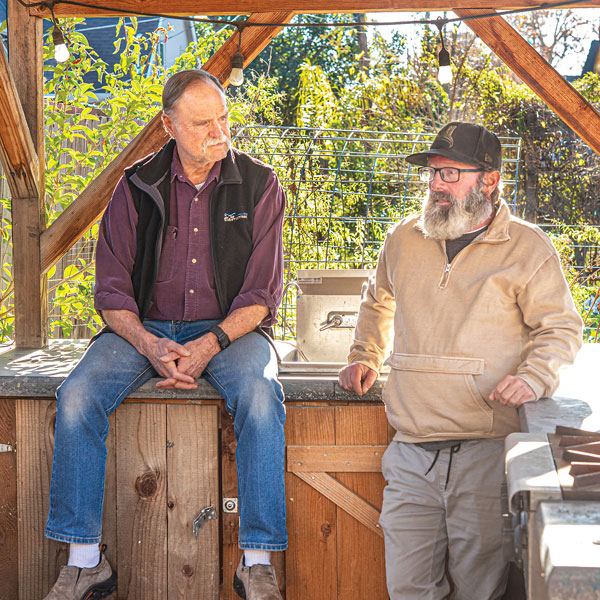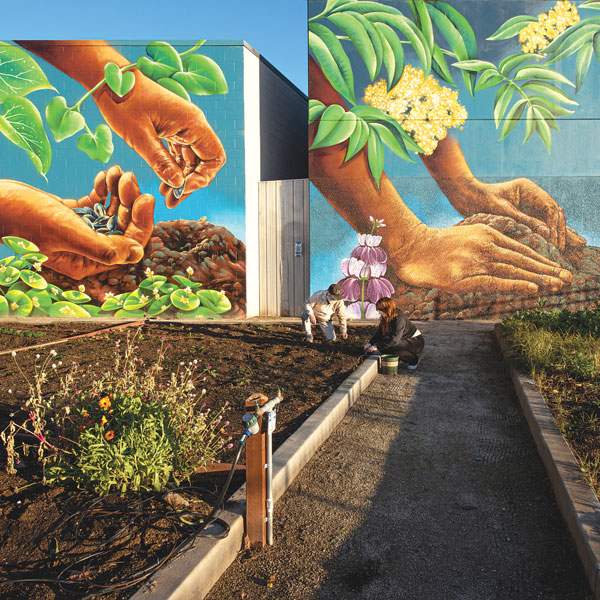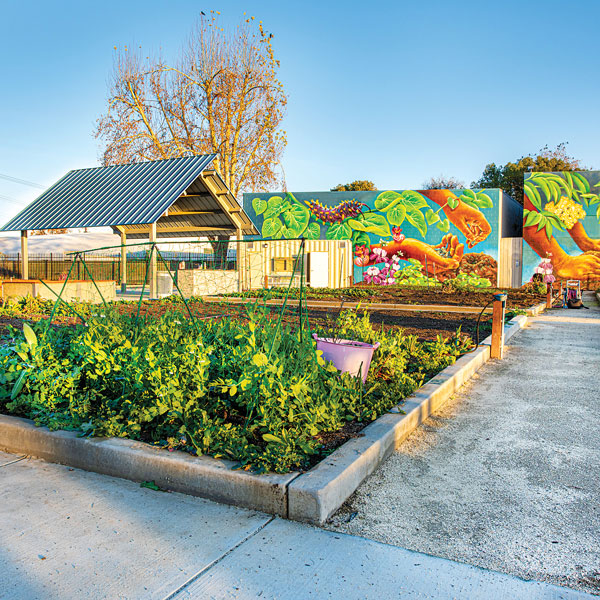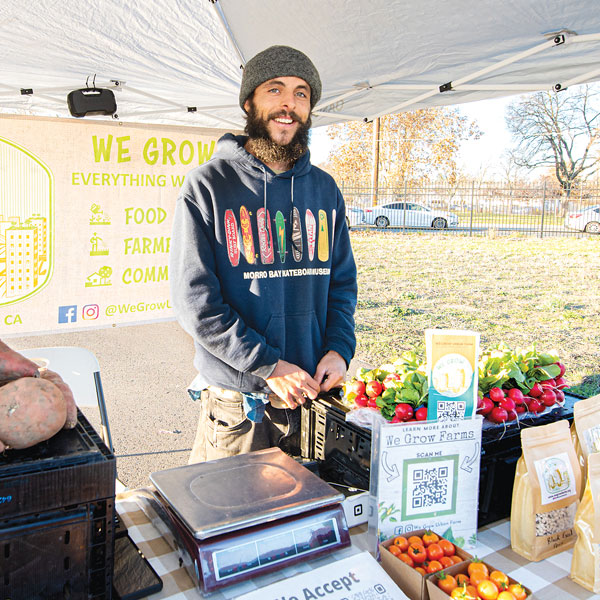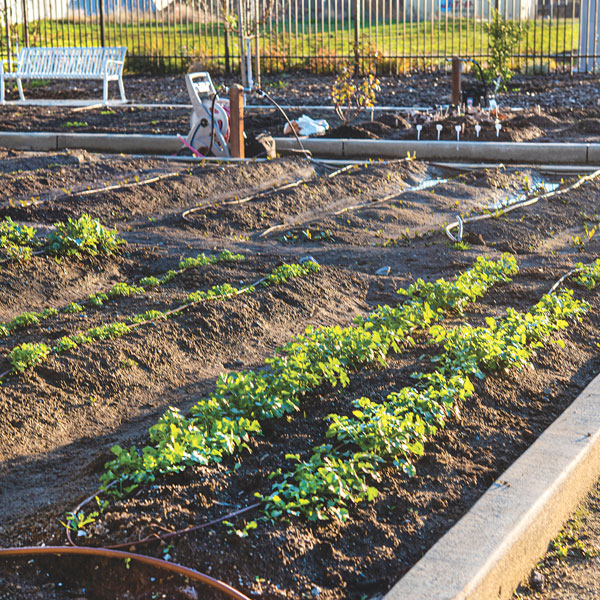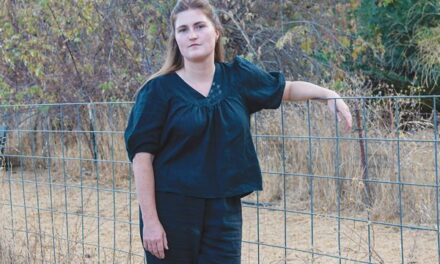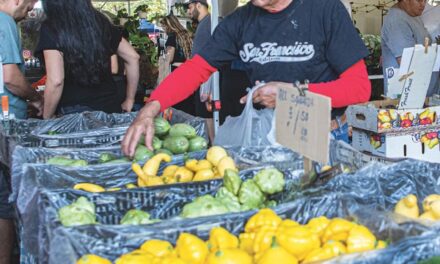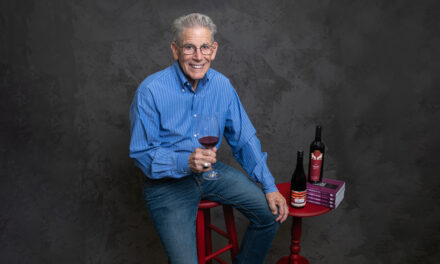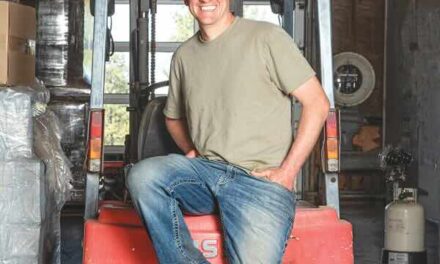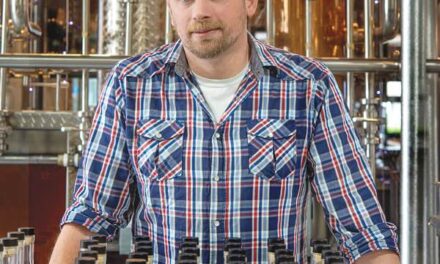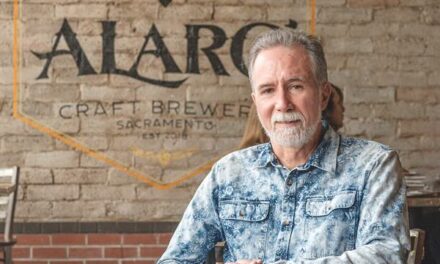Making Connections
Farm-to-fork programs build neighborhood links
By Gabrielle Myers
January 2023
Relationships distinguish the farm-to-fork movement. While farmer-to-chef seems like the obvious partnership, one joy I get from this column is digging beneath the surface to see a myriad other relationships that bring food to our tables and connections to our neighborhoods.
Researching last month’s column on the city’s Urban Agriculture Incentive Zone Program, I met Earl Withycombe, a landowner, community activist and incentive zone pioneer.
He told me how as a landowner he collaborated with city officials to help develop the zone program and work out details so other landowners might benefit.
Partnerships spin out at all levels. As a young man, Withycombe worked in Sierra County to help people gain access to basic health care through the National Health Service Corps. He realized “individuals could make a difference in improving the quality of life in their communities. I could help improve the quality of life in the area that I lived in,” he says.
In our conversation, Withycombe mentioned how he worked with Oak Park Sol to turn his vacant lot into a garden. Earl inherited the plot from his father and decided “to have it used by the community for something that would benefit the community.”
Through a series of partnerships, the empty lot was transformed into a site of nourishment for Oak Park. With the help of a landscape architecture student from UC Davis, Withycombe got assistance designing and installing an irrigation system required by the city.
As the years unfurled like a robust grapevine in the Sacramento summer, the Oak Park Sol community garden became a place where residents grow their own food and create a community.
At the garden, members bring their kids to a children’s garden and creative space. They enjoy a tranquil pond, seating areas and art fence. This level of relationship allows the community to find connection with urban lands that nourish us spiritually, mentally and physically.
Oak Park Sol merged with the nonprofit Alchemist group several years ago. Joe Robustelli, a neighborhood empowerment manager with Alchemist, says the organization hopes to offer healthy cooking demonstrations and involve more local residents. He calls the garden “a place to build community.”
Through another series of partnerships, Alchemist assists the growth of numerous small farm-to-fork businesses in under-resourced neighborhoods. In the Microenterprise Academy, future businesses owners learn how to safely prepare food, develop business plans, and sell and market their products. They receive mentorships on growing their businesses via the Alchemist Kitchen Incubator program.
Robustelli describes the food artisans in the Alchemist Kitchen—a commercial kitchen space for Incubator program recipients—as a close group that supports and helps each other while their businesses expand.
The Alchemist group hopes to build the Alchemist Public Market on a vacant lot in the River District. In another example of partnership, former state Sen. Richard Pan helped the group fund the land purchase and local architects helped design the future market.
The market will serve as a gathering place to enjoy local products. A café and beer and wine bar are also planned.
Oak Park Sol’s partnership with Alchemist has allowed both groups to flourish and accelerate their service to traditionally underserved neighborhoods.
We all have the power to impact positive change. Through collaborations and partnerships, community members and local governments continue to make Sacramento not just the farm-to-fork capital, but a best practice example for other cities—a place that welcomes vibrant, healthy and creatively inspired individuals.
Gabrielle Myers can be reached at gabriellemyers11@gmail.com. Her latest book of poetry, “Too Many Seeds,” can be ordered from fishinglinepress.com. Follow us on Facebook, Twitter and Instagram: @insidesacramento.



